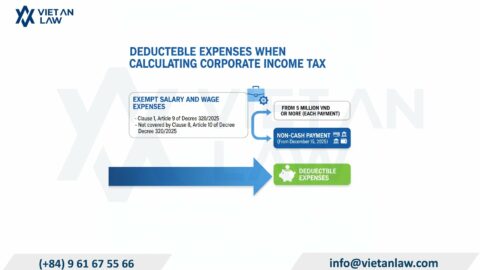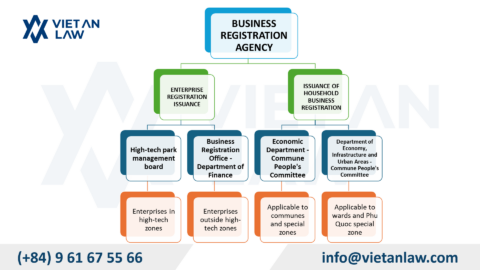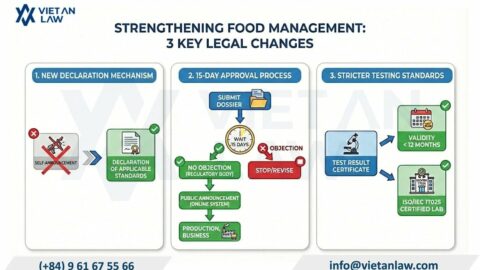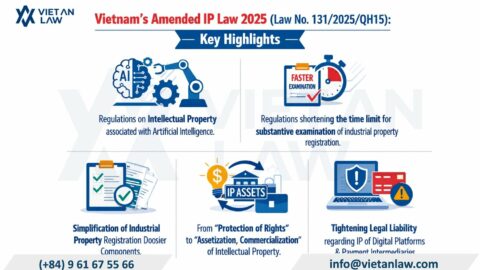On January 18, 2024, the 15th Vietnamese National Assembly passed the Land Law 2024, effective from January 1, 2025, replacing the current Land Law 2013. However, it will take early effect for Article 190 and Article 248 of this Law from April 1, 2024. In the article below, Viet An Law will introduce important new points of the Land Law 2024, replacing the Land Law 2013.
Compared to the Land Law 2013, the Land Law 2024 stipulates 05 new groups of issues on the rights and obligations of enterprises with land, with stricter regulations on land use rights transfer, land prices, and land lease and land allocation.
Previously, the Land Law 2013 only stipulated that businesses and individuals could switch from annual land rent payments to one-time payments for the entire lease period. However, in Clause 2, Article 3 of the Land Law 2024 on the right to choose the form of land rental payment, businesses that are leased land by the State with a one-time payment can transfer the annual payment to reduce financial pressure, leading to reduced real estate prices.
Therefore, economic organizations, individuals, people of Vietnamese origin residing abroad, and economic organizations with foreign capital are leased land by the State with a one-time payment for the entire lease period and can choose to transfer land paid annually. Previously paid land rent will be deducted from land rent according to Government regulations.
Accordingly, the new Land Law allows the expansion of “the limit on transfer of agricultural land use rights to individuals to a maximum of 15 times the limit on individual agricultural land allocation for each type of land” in Clause 1, Article 177, creating conditions to use agricultural land more effectively so that the agricultural sector is increasingly developing, farmers are increasingly wealthy, and the face of rural areas is increasingly innovative, which will have a positive impact on both the economy and the real estate market.
Specifically, Clause 1, Article 177 stipulates that the limit for transferring agricultural land use rights to individuals must not exceed 15 times the limit for transferring agricultural land to individuals for each type of land specified in Clauses 1, 2, and 3 of Article 176 of the Land Law 2024.
Previously, the Land Law 2013 stipulated that the limit for transferring agricultural land use rights to households and individuals was no more than 10 times the limit for transferring agricultural land to households and individuals for each type of land specified. in Clauses 1, 2, 3, and Article 129 of the Land Law 2013.
In addition to general regulations on conditions for transferring land use rights such as the Land Law 2013, Article 45 of the new Law also stipulates cases where investors transfer land use rights that already have technical infrastructure. Real estate projects must meet other conditions as prescribed by the Law on Real Estate Business and the Law on Housing.
In addition, Land Law 2024 also adds regulations related to economic organizations that are entitled to benefits and profit from the transfer of agricultural land use rights. Accordingly, this organization must have an agricultural land use plan approved by the Provincial People’s Committee Browser. Contents that must be shown in the plan include:
According to Clause 3, Article 58 of the Land Law 2013, people who are allocated land, leased land by the State, or are allowed to change the land use purpose to implement investment projects must meet the conditions of not violating the law.
However, according to point c, clause 2, Article 122 of the Land Law 2024, violating the provisions of the Land Law but having fully complied with the legally effective decisions or judgments of the competent authority at the time of the company invests in projects requesting land allocation, land lease, and permission to change land use purposes. This demonstrates the government’s open policy, creating conditions for businesses to have the opportunity to start over after previous violations.
The new Land Law has opened up opportunities for these enterprises by clearly stating that this enterprise has violated the provisions of land law but has thoroughly corrected the violation before the time of applying for land allocation, and land lease. For this purpose, businesses will still receive land and lease land, and the state will allow businesses to change the land use purpose to carry out investment projects.
According to the provisions of Point b, Clause 3, Article 33 of the Land Law 2024, domestic organizations are allocated land by the state with collection of land use fees and lease land with one-time land rental payment for the entire lease period to implement the investment project with business purposes which are exempted or reduced from land use fees or land rents have the same rights and obligations as those who are not exempted or reduced. In case of transferring or contributing capital with land use rights, an amount of money must be paid to the State corresponding to the amount of land tax or land rent exempted or reduced at the time of transfer, land lease, or permission to change land use purposes, unless otherwise prescribed by relevant laws.
This is a completely new regulation to avoid and limit negative effects arising from enjoying State incentives.
According to Clause 2, Article 46 of the Land Law 2024, economic organizations that are leased land by the state are allowed to sell assets attached to land and rental rights in lease contracts when the following conditions are met:
The conditions specified in Clause 1, Article 46 include:
Previously, land recovery in cases where land users did not fulfill their obligations to the State specified at Point g, Clause 1, Article 64 of the Land Law was carried out in cases where the land users did not or incompletely perform paying land use rights and land rent according to the provisions of law but being forced by a competent state agency to fulfill financial obligations without doing so.
The new Land Law directly stipulates in Clause 6, Article 81 that land users who do not fulfill their financial obligations to the state are subject to land recovery.
Article 79 of the Land Law (amended) 2024 specifically stipulates 31 cases in which the State “recovers land for socio-economic development for national and public benefits” and in Clause 32, Article 79 also stipulates “In case of land recovery to implement projects or works for the national or public interest that do not fall into the cases specified in Clauses 1 to 31 of this Article, the National Assembly shall amend and supplement the cases of land recovery of this Article” ensures openness, transparency, ease of monitoring and overcomes the situation of some local cases of widespread land recovery as happened before.
The land price frame specified in the Land Law 2013 is the price prescribed by the Government, issued periodically every 5 years.
Accordingly, the “land price list” is developed annually and the “first land price list” is announced and applied from January 1, 2026, and adjusted from January 1 of the following year, which will help the “land price list” approach the market land price. According to the provisions of Clause 1, Article 159 of the Law 2024, the land price list applies to the following cases:
According to Clause 6, Article 81 of the new Land Law, land users who do not fulfill their financial obligations regarding the land will have their land revoked. Specifically, land users do not fulfill financial obligations in the following cases:
Therefore, businesses must pay land use fees and land rent on time if they do not want their land to be revoked.
If you need advice on the land law in Vietnam, please contact Viet An Law Firm for the best support.




